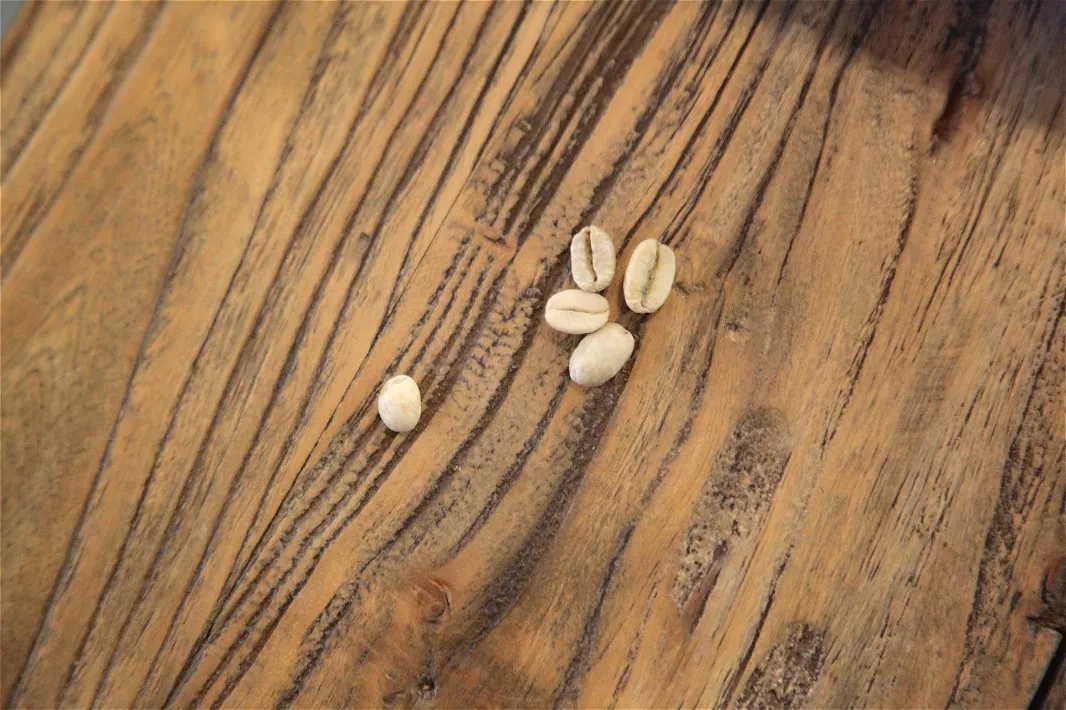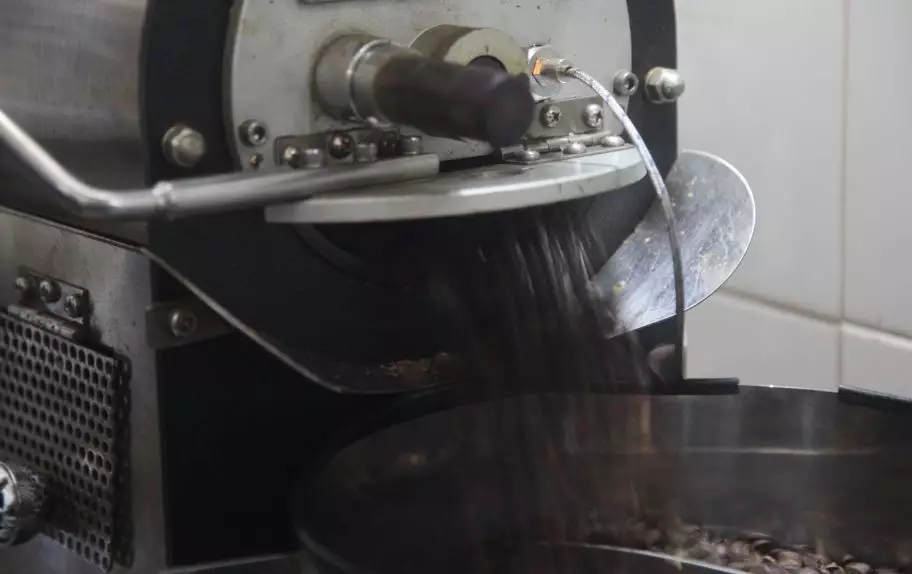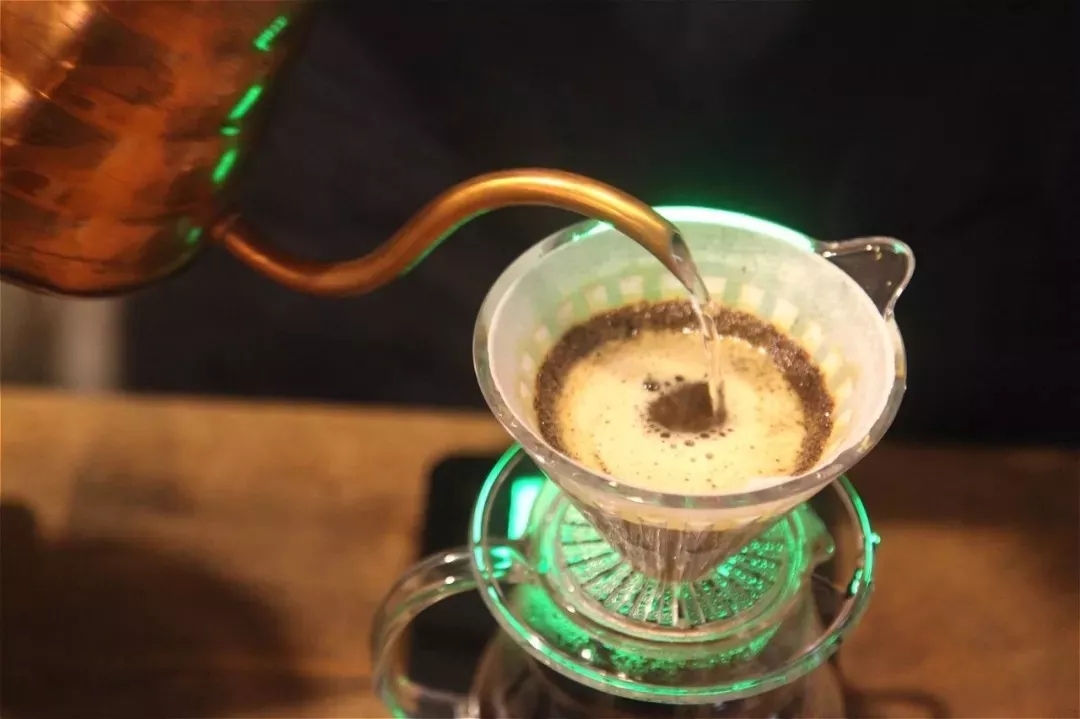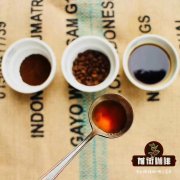Coffee tasting: is coffee bitter normal? Why is coffee bitter?
With the popularity of the concept of boutique coffee, many people begin to pursue the acidity in coffee, thinking that as long as coffee has a bitter taste, it is not good coffee, but is this really the case? Why do we think that bitter coffee is bad coffee?
Where does the bitter taste come from?
| Coffee raw beans

The variety of coffee and the quality of coffee beans will have an impact. Like robusta coffee, it tastes more bitter than Arabica coffee. This is mainly because Robusta has high levels of chlorogenic acid and caffeine. Robusta's chlorogenic acid reaches 10% in the raw bean state, while Arabica only 2%.

When the grade of raw coffee beans is very low, the quality of coffee cherries is mixed, improper handling leads to corruption, poor storage and other conditions may lead to strange taste of coffee beans, showing an uncomfortable bitter taste after roasting. This generally happens in cheaper beans, and boutique coffee is generally carefully taken care of, which is relatively less likely to happen.
| Coffee roasting
Chlorogenic acid

Coffee beans contain a substance called chlorogenic acid, which is converted into something called chlorogenic acid lactone during baking, with a faint and mild bitter taste.

Beans baked below may also have a slightly bitter taste, but they are not obvious, and because they are contained in the complex flavors of acidity and sweetness, they are often not particularly prominent. And this weak bitter taste, in the rich taste, sweet and sour boutique coffee, can reduce the sweet and greasy feeling of beans, keep the mouth fresh, and even strengthen the effect of sweetness and complexity in the final rhyme.
Baking too much

In the process of coffee roasting, the high temperature is used to caramel the starch in the coffee beans, thus bringing out the sweetness and mellow feeling. Whether it is shallow baking, medium baking, deep baking, etc., the process of caramelization is inevitable, but the different heating degree and time lead to different sweetness. If the caramel temperature is too high or the time is too long, it will scorch and produce bitterness. This phenomenon is called carbonization. However, bitterness is by no means a patent for deep baking. As long as the roasting process is unevenly heated, the surface of the coffee can easily receive too much heat, making the skin carbonized and will naturally produce bitterness.
| | Cooking |
If the brewed coffee is overextracted, it is easy to have a bitter taste. Because when we extract, we first extract small molecular substances such as acid and salty, followed by sweetness, and finally bitterness. At this time, the coffee is not only bitter, but also mixed and astringent.

When brewing water temperature, grinding and brewing time will have an impact on the extraction of coffee, grinding is too fine, the extraction rate is increased, it is easy to over-extraction; water temperature is too high, the extraction rate will not be low, then the probability of over-extraction will be increased; as mentioned earlier, bitterness is the last extraction, if the coffee extraction time is too long.
Why do we think coffee has a bitter taste = bad coffee?

When most people say bitter, they actually mean bitter. Before the concept of boutique coffee came out, the baking degree of beans was relatively deep, mainly because most of the beans at that time were of poor quality. Most of the poor quality beans come from farms at low elevations, which do not have enough shade and diverse ecosystems. Coffee beans ripen very quickly, so there is a lack of opportunities to absorb various flavors from the fruit. When the degree of baking is deep, there is no special flavor to drink, basically only bitterness.

In fact, the bitter taste of coffee is not so bad, proper bitterness in a cup of coffee can bring out more flavor levels, but do not have too much bitterness, too much bitterness will cover other flavors!
Important Notice :
前街咖啡 FrontStreet Coffee has moved to new addredd:
FrontStreet Coffee Address: 315,Donghua East Road,GuangZhou
Tel:020 38364473
- Prev

What is the significance of Yemeni coffee? how does Yemeni coffee spread? what is the status of Yemeni coffee in the world?
Professional coffee knowledge exchange more coffee bean information please pay attention to the coffee workshop (Wechat official account cafe_style) Yemeni coffee mocha coffee is the world's oldest coffee, its taste is consistent with the ancient and mellow, ancient origin of mocha coffee, is synonymous with coffee, its unique aroma and sour taste, deeply attracted many coffee lovers.
- Next

A brief introduction to the characteristics, climate and growing environment of coffee beans and their coffee beans in 12 countries
Professional coffee knowledge exchange more information about coffee beans Please follow the coffee workshop (Wechat official account cafe_style) Coffee comes from the Greek Kaweh, meaning strength and enthusiasm. Coffee tree is a small evergreen tree of Rubiaceae. Coffee for daily drinking is made of coffee beans combined with various cooking utensils, and coffee beans refer to the nuts in the fruit of coffee trees.
Related
- How did the Salvadoran coffee industry develop in Central America?
- What exactly does the golden cup extraction of coffee mean?
- The Origin of Coffee flower
- [2023 Starbucks World Earth Day] there are more meaningful things besides free Starbucks coffee!
- What kind of coffee is there in Spain? 9 Flavors of Spanish Coffee
- Aromatic African coffee| Kenya's coffee culture and historical production area
- Liberica Coffee Bean knowledge: the characteristics of Liberian Coffee beans of the three original species of Coffee beans
- The origin and formula of Spanish latte introduces the taste characteristics of Bombon coffee in Valencia, Spain.
- How to adjust the solution of over-extracted coffee
- What is the tasting period of coffee beans? What is the period of coffee and beans? How should coffee wake up and raise beans?

